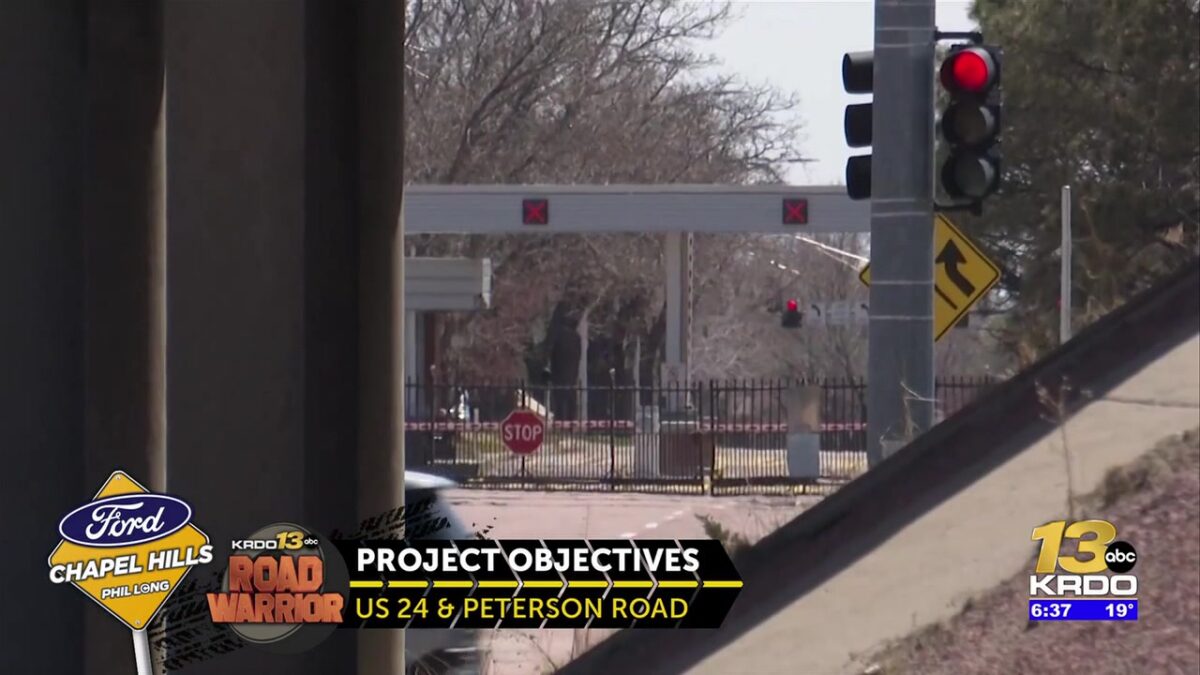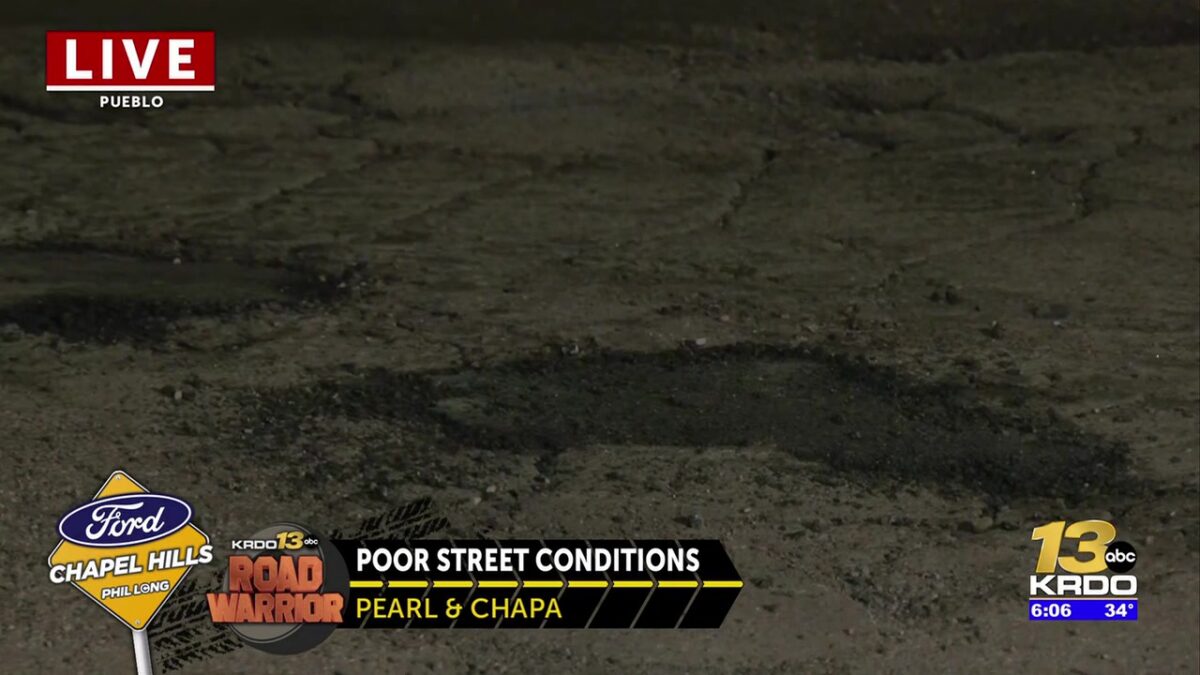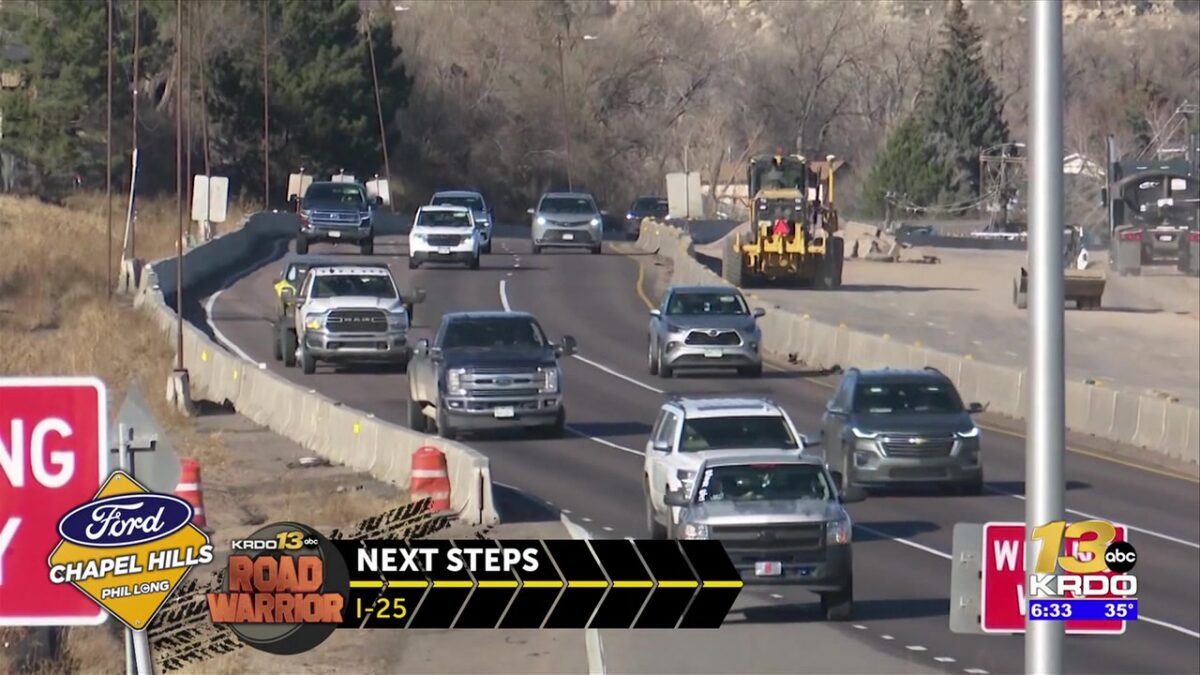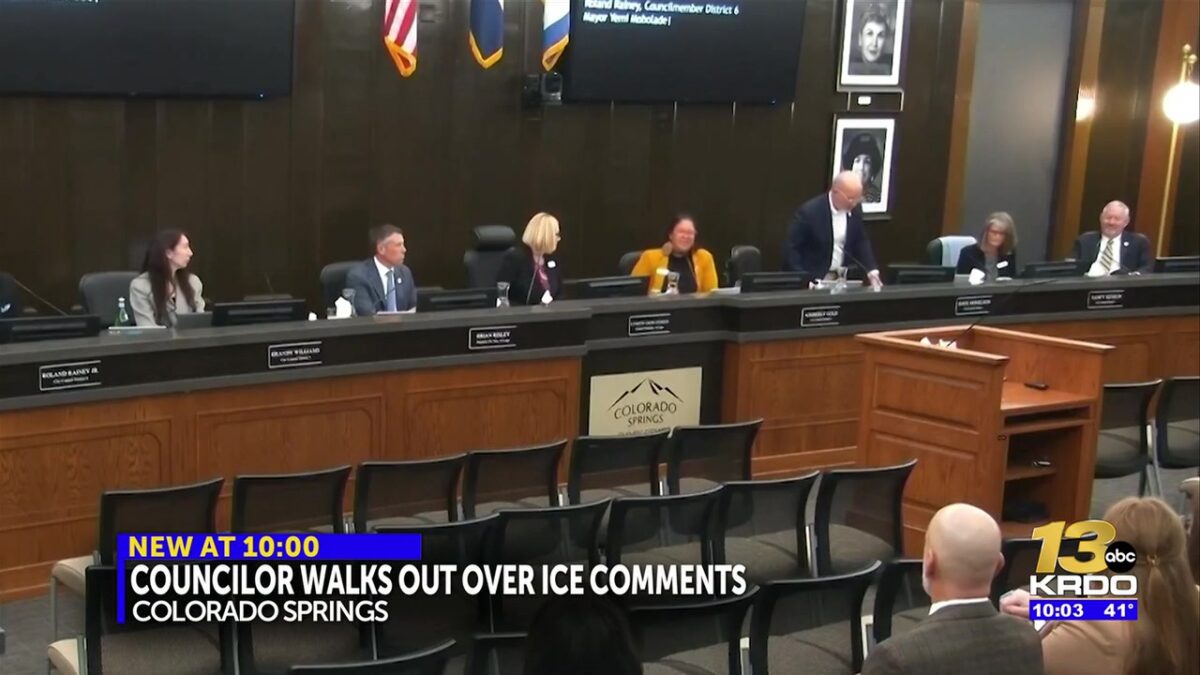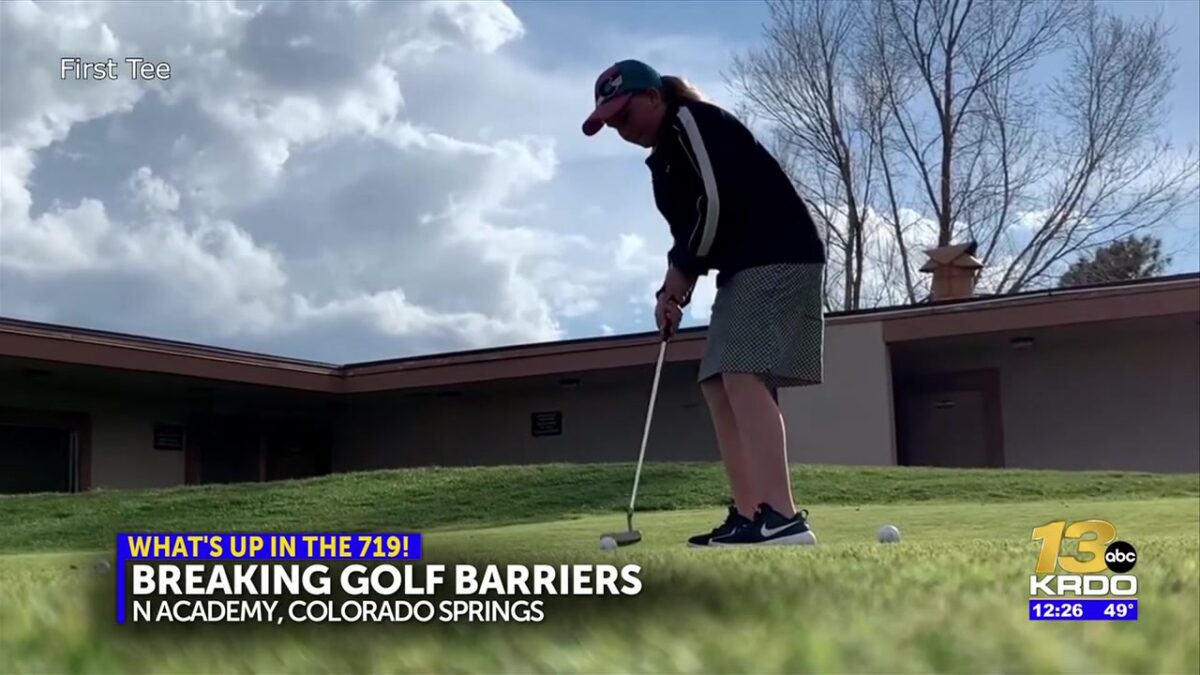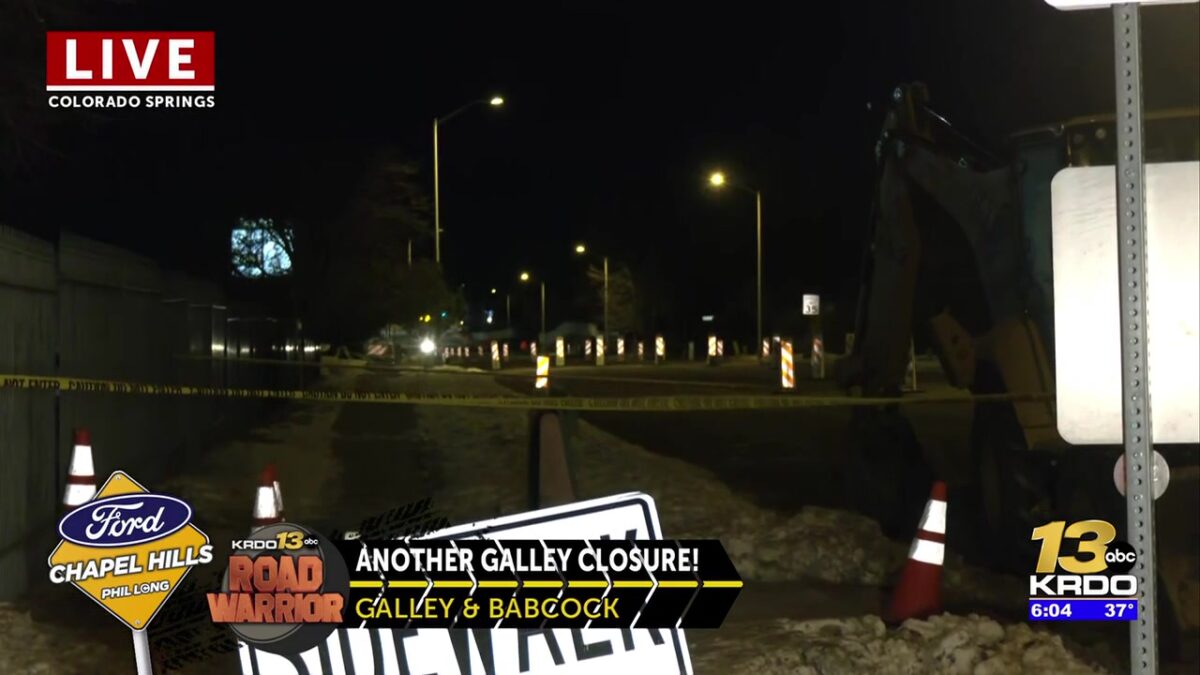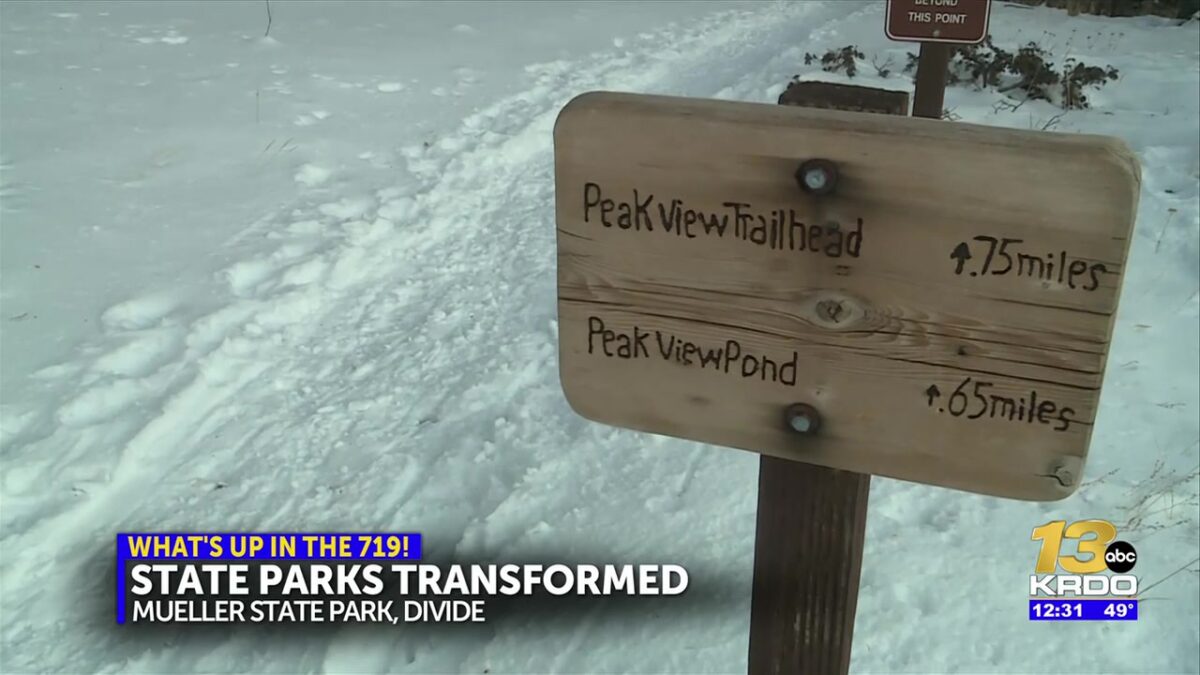$15 million traffic project begins outside north gate of Peterson Space Force Base in Colorado Springs
Scott Harrison
COLORADO SPRINGS, Colo. (KRDO) — A project that The Road Warrior first reported on last April, and was scheduled to start the following month, is finally getting underway at the interchange of US 24, Peterson Road, and Space Village Avenue.
Officials stated that the right southbound lane of Peterson, between the US 24 overpass and the north gate of Peterson Space Force Base, will be closed for three weeks for the first phase of work.
 Courtesy: City of Colorado Springs
Courtesy: City of Colorado Springs
The closure allows workers to install a storm sewer; the left southbound lane will remain open for base access.

Gayle Sturdivant, the city’s deputy director of public works, said that the project is starting later than intended as officials awaited the arrival of federal funding for the $15.3 million effort — two-thirds of which was provided by an infrastructure grant from the U.S. Department of Defense.

“When you get grant awards, they are sometimes for future monies, or you have to go through grant agreements,” she explained. “So, even though you know you’re going to get the money when you can physically have access to it, the timing can be a little bit different.”
Since 2017, local leaders have studied how to address what they describe as present and future “extreme” traffic congestion in the area.

Officials have revealed that traffic in and out of the base recently has been slowed by two projects: the construction of a new interchange at Airport Road and Powers Boulevard, which leads to the main entrance at the west gate, and a utility project outside the east gate along Marksheffel Road.
Additionally, Peterson’s leadership wants to change its north gate configuration to correspond with the latest improvement project, and that likely will result in more daytime traffic.

Previously, the north gate was the main entrance into the installation.
“They were asking us to get more people in that queue, to get in that southbound lane to go into that gate,” Sturdivant said. “We actually have taken over control of that signal right there — the traffic signal — so we can get more folks queued up to go into the gate, through security.”

The project’s overall focus is to improve travel onto and off of the base — not just for traffic, but also for pedestrians, cyclists, and trail users.
A major feature of the project involves building two roundabouts just north and south of the US 24 interchange.

In The Road Warrior’s April 2025 story, managers at several of the eight businesses in a Space Village shopping center expressed concern about how the project may affect them and their customers, citing negative impacts to businesses at some other projects.

Officials expect to finish the project early next year.
Partners in the project include Colorado Springs, El Paso County, the U.S. Department of Defense, Peterson Space Force Base, the Colorado Department of Transportation, and the Pikes Peak Area Council of Governments.
